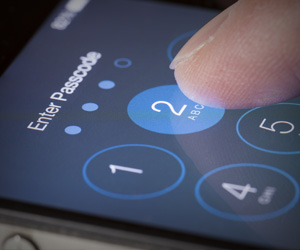When: October 19 – 22, 2024
Where: Boston, MA
The International Association of Chiefs of Police (IACP) Annual Conference and Exposition is the largest and most impactful law enforcement event of the year – more than 16,000 public safety professionals come to learn new techniques, advance their knowledge and careers, and equip their department for ongoing success.
The three tenets of the conference are training, networking, and exhibit hall education.
» Read more
Register Here

This course introduces the history of UAVs and the ways they are commonly used, both legitimately and in relation to a crime, and focuses on the ways law enforcement can gather and analyze evidence involving drones. Topics include gathering evidence both internal and external to the drone, as well as methods for manually processing flight logs and displaying data in Google Earth.
» Read more
Click here for more information

In contrast to the other courses in this series, which deal primarily with the acquisition of digital evidence, this course addresses legal issues that appear relatively late in the investigative and judicial process. Topics include the Fifth Amendment as it applies to passwords and login credentials, determining the ownership of files on digital devices, and the admissibility of online evidence.
» Read more
Click here for more information

This course provides a legal overview of what investigators are and are not permitted to do while conducting online undercover investigations. Topics include terms of service, entrapment and outrageous government misconduct, and wiretapping law as it relates to the recording and documenting of online activities. This course also covers defense strategies commonly used to counter online undercover investigations.
» Read more
Click here for more information

This course provides information on obtaining and executing search warrants in cases involving digital evidence, with a focus on the similarities and differences between these and other search warrants. The course covers establishing probable cause, particularity, scope, and nexus; the use of outside experts; and out-of-state warrants for remote evidence.
» Read more
Click here for more information

This course provides basic information for first responders who may encounter digital evidence in the course of their duties. Topics include the definition of digital evidence, where it can be found, the importance of getting digital devices to a forensics expert, and the ways in which digital evidence can be compromised. This course also addresses the issue of when a warrant is required to seize and/or search digital devices.
» Read more
Click here for more information

This course focuses on gathering information from social media sites. Students will learn about popular social media platforms, tools that can help them discover information on them, and ways to capture and save online media. This course is part of the Open Source Intelligence Modules. It can be completed as a stand-alone course or in combination with the other courses.
» Read more
Click here for more information

This course covers a variety of tools and techniques to conduct deep web searches that go beyond common search engines like Google. The course highlights tools for discovering information about people and companies both domestically and internationally. It also includes tools for discovering and manipulating device information such as IP addresses. This course is part of the Open Source Intelligence Modules. It can be completed as a stand-alone course or in combination with the other courses.
» Read more
Click here for more information

This course focuses on practical online search techniques. Students will learn about using the advanced features of popular search engines, accessing cached versions of websites, searching with images, and common signs of fake and manipulated images. This course is part of the Open Source Intelligence Modules. It can be completed as a stand-alone course or in combination with the other courses.
» Read more
Click here for more information

This course provides an introduction to the digital space commonly referred to as social media and networking. Terminology used to describe how social media and networking services are accessed, statistical data on users and mobile devices, and a variety of popular services are covered in the first part of the course. This course also identifies and explains law enforcement uses of social media and networking services, the value of open source intelligence (OSINT), and important considerations such as social media policies,
» Read more
Click here for more information














